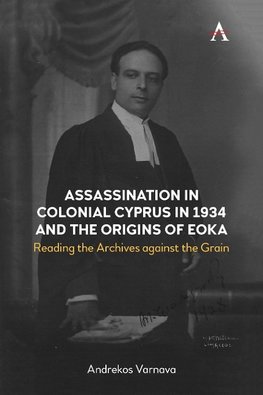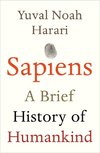
-
 Anglický jazyk
Anglický jazyk
Assassination in Colonial Cyprus in 1934 and the Origins of Eoka
Autor: Andrekos Varnava
After a long and hard day at work, which had taken him to Larnaca, Antonios Triantafyllides, a leading lawyer recently appointed to the Cypriot government's Advisory Council, arrived at his Nicosia home in the cool evening of 12 January 1934, only to be... Viac o knihe
Na objednávku, dodanie 2-4 týždne
30.96 €
bežná cena: 34.40 €
O knihe
After a long and hard day at work, which had taken him to Larnaca, Antonios Triantafyllides, a leading lawyer recently appointed to the Cypriot government's Advisory Council, arrived at his Nicosia home in the cool evening of 12 January 1934, only to be shot by an unknown assailant. He died the next morning. Twelve months later, Stavros Christodoulou was charged, but acquitted of the murder. Considered political, the murder has been a taboo subject for Cypriot society and historians alike, and a cold case that nobody has seemingly taken any interest in solving let alone in exploring (at least publicly), that is, until now.
This book offers a theory on who was behind the assassination of Antonios Triantafyllides, the FIRST attempt to break open and explain an 87-year-old cold case.In doing so, it explores both the relationship between the British colonial authorities and the Cypriot political elites, and the various divisions within the latter. Triantafyllides supported enosis, the union of Cyprus with Greece, but after over a decade of involvement in nationalist politics without results, he decided that the only way to achieve it was to cooperate with the British. This change occurred by the 1931 crisis, which culminated in the burning of the government house in Nicosia in October and led to a British crackdown, including the suspension of the constitution, abolition of the Legislative Council and the deporting of leading nationalists. In October 1933, the British decided to establish an Advisory Council of leading Cypriots. Triantafyllides, who had, albeit briefly, served in the elected Legislative Council and the nominated Executive Council, accepted the invitation. He attended one meeting before being shot. The British initially suspected the extreme nationalists and banished five of them, then blamed a communist conspiracy, but the man charged was acquitted.
This book creates and analyses a 'community of records' to show that by reading both with and especially against the grain, it is probable that those responsible were radical right-wing nationalist extremists. Thus, for historical criminologists and crime investigators, the exploration of the sources examined could serve as a model of forensic analysis of cold cases. For those interested in the British Empire, the book shows how the British authorities had no real control over extremist nationalist politics and political violence in the 1930s no more than they did in the 1950s, and they were unable to protect those individuals willing to work with them to better the country. In fact, as numerous historians have attested, during the campaign by EOKA between April 1955 and March 1959, more Greek Cypriot civilians were murdered than any other target group. For those with an interest in Cypriot history, this book will make startling and uncomfortable revelations about the so-called National Liberation Movement in Cyprus and suggest that the violence that gripped the island from the 1950s and led to partition could have been avoided had not for the assassination of arguably the most capable and astute politician produced, at least until that time, in the island.
- Vydavateľstvo: Anthem Press
- Rok vydania: 2021
- Formát: Paperback
- Rozmer: 229 x 152 mm
- Jazyk: Anglický jazyk
- ISBN: 9781785275524






 Ruský jazyk
Ruský jazyk 





